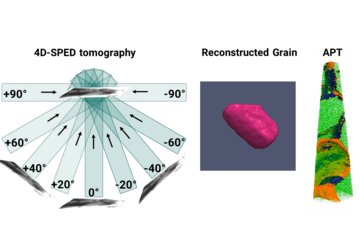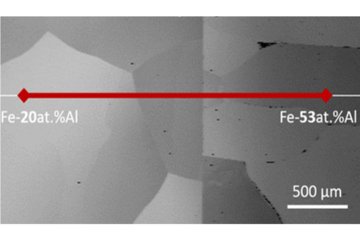All genres
2341.
Teaching
Suface Mechanics, Ridging and Orange Roughness.
2342.
Teaching
Eine ganz kleine Geschichte der Metalle.
2343.
Teaching
Ternary high-strength Cu-based in-situ metal matrix composites.
2344.
Teaching
Schmelzmetallurgische Herstellung und Kaltumformung eines Kupfer-Niob-Silber in situ Verbundwerkstoffes.
2345.
Teaching
Textures of Continuously Annealed IF Steels.
2346.
Teaching
Von Rittern und Rächern - Metalle für Krieg und Frieden.
2347.
Teaching
Eine kleine Geschichte der Metalle - 6000 Jahre Hochtechnologie.
2348.
Teaching
Das Gold anderer Leute.
2349.
Teaching
Herrscher über Gold und Stahl.
2350.
Teaching
Die Mythen der Metalle. Lecture: online teaching
2351.
Teaching
Polymer structure and micromechanics. Lecture: Vorlesung, RWTH Aachen, Germany
2352.
Teaching
Dislocation-dynamics. Lecture: Vorlesung
2353.
Teaching
Geschichte der Metalle. Lecture: Vorlesung, RWTH Aachen, Germany
2354.
Teaching
Geklaute Metalle. Lecture: Vorlesung
2355.
Teaching
Methoden der theoretischen und experimentellen Untersuchung der plastischen Dehnung auf Kornebene.
2356.
Teaching
Kristallographische Grundlagen der Texturen von Stahl.
2357.
Teaching
Anisotropie, Textur, Umformtechnik.
2358.
Teaching
Principles to design and simulate hierarchical materials with property-relevant structural features.
2359.
Teaching
Ridging Phenomena in BCC and FCC Polycrystals.
2360.
Thesis
Untersuchung des Einflusses definierter Schmierverhältnisse am Beispiel des Flachstauchversuches. TU, Clausthal, Germany (2002)











